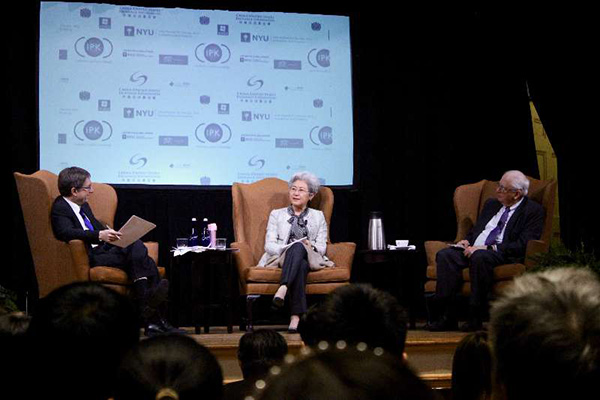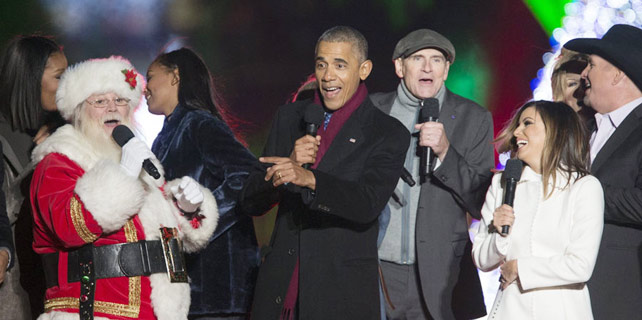Fu Ying: Infrastructure can be China-US bridge
 |
|
Fu Ying (middle) at a China-US forum on Thursday held by New York University (NYU) and the China-US Exchange Foundation at the NYU Law School.[Photo by Hezi Jiang with chinadaily.com.cn] |
Fu Ying sees infrastructure as a great opportunity for US-China cooperation under America's president-elect.
"You need a bigger harbor," said Fu, chairperson of the Foreign Affairs Committee of the National People's Congress of China, drawing audience chuckles during a China-US forum on Thursday held by New York University (NYU) and the China-US Exchange Foundation at the NYU Law School.
Fu said that the CEO of COSCO Group, China's largest shipping company, told the US Congress two years ago that America has to upgrade its ports to grow its exports.
"But America doesn't want to take investment from other countries like China, and you don't invest yourself," she quoted the CEO as saying.
She said the election of Donald Trump may lead to a new phase, as he vowed to "transform America's crumbling infrastructure".
"US needs to be more open. I think there can be very, very good cooperation," said Fu, who formerly served as China's ambassador to Australia and the United Kingdom. "Back then, China borrowed from all over the world to build our infrastructure, and now we are building railways and highways in Africa."
Asked if she worries about a changing landscape of US-China relations under the Trump administration, Fu said it was too soon to tell, but she is not pessimistic.
She said the phone call between President Xi Jinping and Trump was "very encouraging", as Trump agreed with Xi that cooperation is the only choice between the two countries, and they will advance the relationships to bring more benefits to the people of the two countries.
She said a trade war between the two was unlikely.
"It will bring too much damage after some calculation," Fu said. "Especially (because) your president-elect is a businessman. He's smart enough."
But she hopes for an improvement in trade and investment between the countries, and wants America to be more clear and consistent with its message.
"What do you want exactly? You want China to invest in here, to create jobs? Then why do you politicize the investments from China?" asked Fu, who suggested the US government and political candidates be more careful with rhetoric about China. "People are listening. The world is listening," she said.
Also in attendance was Stapleton Roy, a senior US diplomat who spent much of his career in East Asia cities, including Beijing, Hong Kong and Taipei.
Roy endorsed Fu on the idea of infrastructure, and said the two countries should further cooperate on climate change and cybersecurity. He said the US may still participate in China's Belt and Road Initiative despite it refused to join the Asian Infrastructure Investment Bank project, which he considers as a mistake.
Fu said "we were surprised and disappointed that the US was against" the Asian Infrastructure Investment Bank. "But the US is especially welcome to join the Belt and Road initiative, with all the advantages the US has."
















